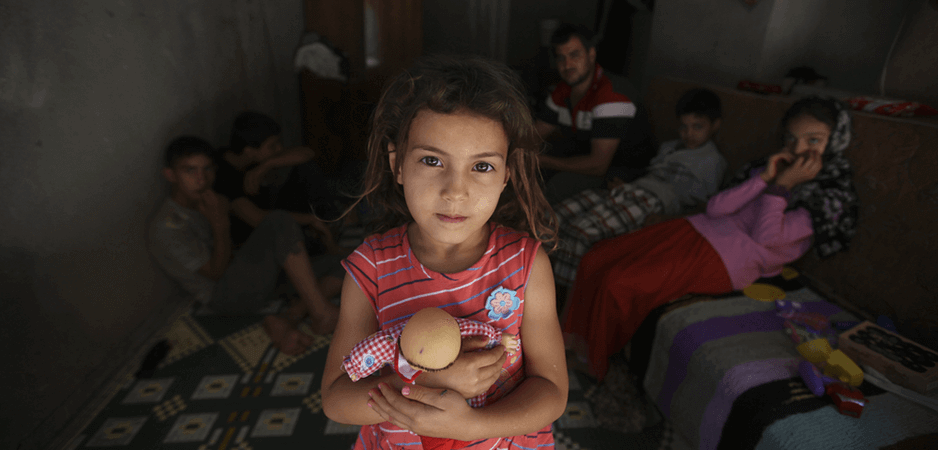World Refugee Day should be an observance of communities that have opened their hearts and cities to those in need.
While I have often expressed my thoughts about the Syrian, Palestinian and Iraqi refugees in Lebanon, even including the burdens carried by Jordan and Palestine, it is only a starting point for recognizing the awful global conditions of refugees, internally displaced peoples, undocumented migrants and stateless people that live in all corners of the globe.
You have heard the numbers and they are all horrific, no matter how you rationalize them. For example, The Guardian published a list of the 34,361 people known to have died trying to reach Europe since the early 1990s. Ironically, according to Vox, “The UN defines a refugee as ‘someone who has been forced to flee his or her country because of persecution, war, or violence.’ As of May, an estimated 25.4 million refugees around the globe have fled their homes to escape violence and persecution.”
Yet World Refugee Day on June 20 is not for mourning, as Vox notes, “It’s a day that the United Nations created to celebrate the resilience and courage of refugees and their contributions to society.” That is small comfort to the tens of millions of refugees, many fleeing persecution because of ethnic, religion, tribal or other confrontations over identity.
More facts from the same story:
“By the end of last year, according to a recent UNHCR report, there were 68.5 million forcibly displaced people in the world, including 25.4 million refugees. The number also includes about 40 million internally displaced people — people who were forced to leave their homes but are still in their home countries — and 3.1 million asylum seekers, or people who have applied for refugee status but are waiting for approval.
2017 was the sixth consecutive year that the number of forcibly displaced people in the world surpassed peak World War II levels, and this year’s reports indicate that that number is probably going to keep going up.
The majority of refugees right now are from Syria, where 6.3 million people have fled their country to escape the ongoing conflict there. European countries have also taken in asylum seekers from several other countries, like Iraq and Afghanistan.”
So, how is it possible to celebrate resilience and courage when refugees face separation from their families, may be interred in inhospitable facilities, and deprived of basic services and support? It is more an observance of the survival instincts of the human condition, both for the refugees and for their host communities when they open their homes and share their resources with strangers.
So while the Lebanese, Turks, Jordanians, Malays, Colombians, Ugandans, Pakistanis and others are bearing the burdens of those less fortunate, the US and Europe — most recently Italy — are responding by shutting down their borders. Here’s a snapshot worth pondering:
“Last September, the US dropped the refugee cap, which is the maximum number of refugees from anywhere to the US to just 45,000 people, the lowest number in years. And even though Syrians are the largest group of people fleeing conflict right now, from January to April of this year the US reportedly only accepted 11 Syrian refugees.”
World Refugee Day should be an observance of communities like Rochester, Minnesota, Portland, Maine and Oakland, California, which have opened their hearts and cities to refugees and are benefiting from having inclusive and empowering populations driving sustainable economic growth.
So, let’s salute those host communities, international and local agencies, and refugees in Lebanon and elsewhere who are facing the challenges of remaking their lives under very difficult conditions. And let’s continue to encourage the US and the international donor community to expand their humanitarian assistance to those in need.
*[A version of this article was also featured on the author’s blog.]
The views expressed in this article are the author’s own and do not necessarily reflect Fair Observer’s editorial policy.
Photo Credit: kafeinkolik / Shutterstock.com
Support Fair Observer
We rely on your support for our independence, diversity and quality.
For more than 10 years, Fair Observer has been free, fair and independent. No billionaire owns us, no advertisers control us. We are a reader-supported nonprofit. Unlike many other publications, we keep our content free for readers regardless of where they live or whether they can afford to pay. We have no paywalls and no ads.
In the post-truth era of fake news, echo chambers and filter bubbles, we publish a plurality of perspectives from around the world. Anyone can publish with us, but everyone goes through a rigorous editorial process. So, you get fact-checked, well-reasoned content instead of noise.
We publish 2,500+ voices from 90+ countries. We also conduct education and training programs
on subjects ranging from digital media and journalism to writing and critical thinking. This
doesn’t come cheap. Servers, editors, trainers and web developers cost
money.
Please consider supporting us on a regular basis as a recurring donor or a
sustaining member.
Will you support FO’s journalism?
We rely on your support for our independence, diversity and quality.






